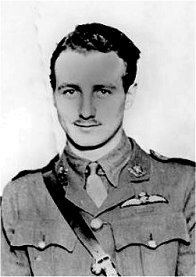| Other Info | He was the son of Mr. Horace Robinson who had a coffee estate of Kaima Betta, in Pollibetta, India, and a grandson of Mr. William Braham Robinson, R.N., Chief Naval Constructor at Portsmouth Dockyard. William Leefe Robinson came to England when six months old. Early schooling included a year at the Dragon School, Oxford between 1901-1903. He returned to India when he was seven and had four years at the Bishop Cotton School in Bangalore. At fourteen he came back again, and went to St. Bee's School, Cumberland (September 1909). His last year at St Bees, no longer in the shadow of his elder brother Harold, was probably his best. He was appointed head of Eaglesfield House, and as a Sergeant in the OTC he had his first experience of army life at the large 'camp' which took place at Mytchett in Kent.
After travelling in France for some time, he entered Sandhurst in August, 1914, and on December 16th of that year was gazetted to the 5th Battalion Worcestershire Regiment.
In March 1915, he put in for a transfer to the Royal Flying Corps. The fledgling corps needed all the men it could get, and the request was immediately answered. On 29th March 1915 he was posted to No. 4 Squadron at St. Omer, under Major C.A. Loncroft, flying BE2cs in reconnaissance patrols over the German lines, and in the second week of April was made "efficient" and put on full pay.
Later he joined the Royal Flying Corps, and was in France as an observer from February 1915 until on 9th May 1915, he was wounded in the right arm by
shrapnel whilst flying over Lille. He came back to England, and, after convalescence, began training as a pilot, taking his certificate on 28th July 1915. Subsequently he was trained as a night pilot, and was up on all the raids near London during 1916.
VICTORIA CROSS CITATION: On the 5th September 1916, the London Gazette announced the award;
"War Office 5th September 1916. His Majesty the King has been graciously pleased to award the Victoria Cross to the undermentioned officer, Lieutenant William Leefe Robinson, Worcestershire Regiment and Royal Flying Corps. For most conspicuous bravery. He attacked an enemy airship under circumstances of great difficulty and danger, and sent it crashing to the ground as a flaming wreck. He had been in the air for more than two hours and had previously attacked another airship during his flight." |
|---|
